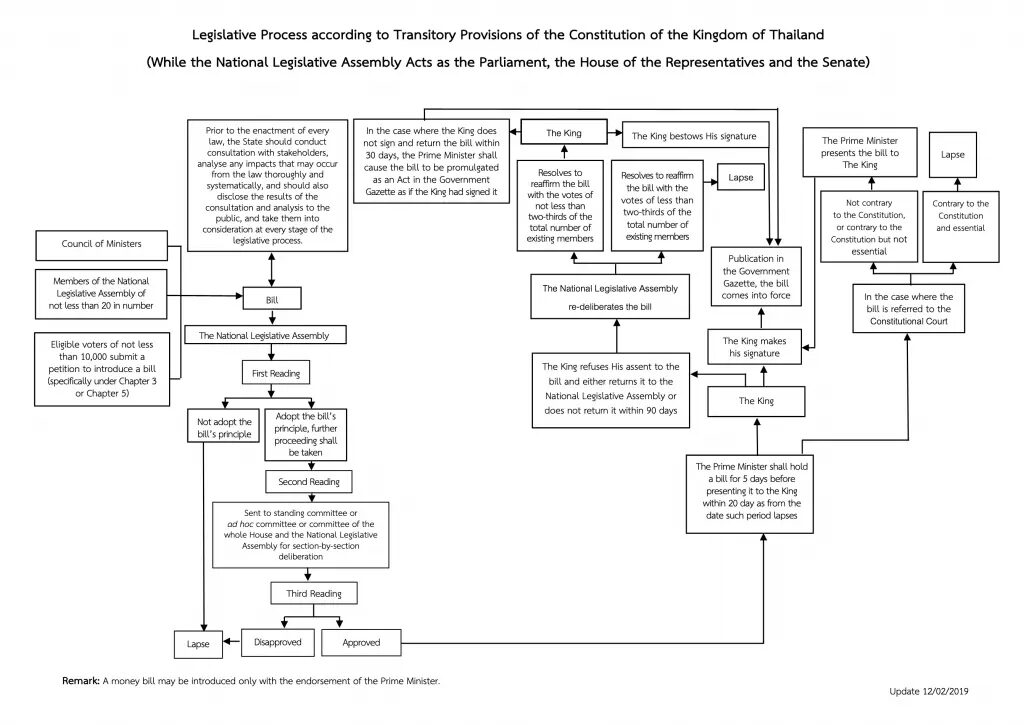Last updated on September 26th, 2023 at 08:48 am
One of the things we quickly discovered in researching the cannabis laws in Thailand is that there was a lot of misleading cannabis news floating around.
First off, before we even get started, we want to acknowledge the fact that we are not legal experts, nor are we experts in the Thai legislative process.
But we do know a few things about cannabis. And when there’s a news story about something concerning cannabis in Thailand we’ve learned to read between the lines and try to understand whether the journalist writing the story:
a) Is writing an original piece of re-writing something they found from another source
b) Has any level of expertise or understanding of the cannabis laws or market in Thailand
For instance, many journalists don’t seem to understand the Thai legislative process and will often report that proposals (which may get amended or scrapped altogether) or announcements of pending laws are actual laws.
Others are just uninformed on cannabis, in general, and they write stories which turn out to be misleading.
Granted, it’s a new topic for most journalists covering Thailand given the fact that cannabis has been illegal for over 90 years. They’re used to writing about people being arrested for possession of marijuana. They don’t have a lot of experience explaining the difference between hemp and marijuana plants.
But the biggest problem with misleading cannabis news comes from how news gets reported in the age of social media. A hastily written article gets posted and then another news outlet rewrites the story and then another news outlet sees that rewritten story and rewrites a version of their own and so on and so on.
The truth becomes unrecognizable.
For instance, check out this news Jan 29, 2020 Chiang Rai Times story that was retweeted many times and posted all over social media.
Lawmakers in Thailand Remove Cannabis From Narcotics List
I won’t quote the whole article but this is the main substance of it.
Thailand’s Public Health Ministry announced Tuesday that Cabinet has agreed to the removal of cannabis from the narcotic list. It was approved under ministerial regulation of the Public Health Ministry, Deputy Government Spokesperson Traisulee Traisaranakul, said.
The regulation also states that researches would conduct research on the effects of cannabis in medicines, cosmetics, and herbs in line with government’s policy. Above all to boost the country’s production competitiveness.
“Preliminary, this regulation allows the cultivation of cannabis plants by individuals and corporation. Subject to the conditions on trade and possession ” Traisulee told The Nation.
“The regulation also states that cannabis plants can be grown at the maximum of one Rai per household” she said. Adding that “Growers must be licensed, and grow only species specified in the new regulation”.
First off, it’s an obvious rewrite of this Jan 28, 2020 article in The Nation, New rule allows growth of cannabis plants with a more click-bait title.
But neither of those stories is entirely accurate. On Jan 31, 2020, in the Bangkok Post the following story ran, Hemp still illegal, says ONCB
Before I even quote the article, the first thing that popped out to us was the fact that it seemed highly unlikely that all cannabis was taken off the narcotics list. After checking several sources, we concluded that this was probably regarding hemp, not marijuana. And we were equally perplexed at how this had completely bypassed the Thai legislative process.
Now, back to the Bangkok Post story:
The Office of the Narcotics Control Board (ONCB) on Thursday insisted that hemp plants were still illegal, meaning they cannot be grown or possessed.
Niyom Termsrisuk, secretary-general of the ONCB, said that as a Class 5 narcotic, hemp cannot be legally cultivated, imported, exported, sold, possessed or consumed without a permit.
Even though the cabinet recently agreed in principle to take hemp off the narcotics list, he said, the matter was still being considered by the Council of State after which it would be sent back to the cabinet for final approval.
When it is passed by the cabinet, the public health minister will issue a ministry regulation which will be announced in the Royal Gazette, he added.
So, it was just hemp, and not marijuana. And, as we suspected, this was not an actual legally binding change, it was a proposal that had yet to be approved.
But, by this point, not only was the story that cannabis was no longer a narcotic, but many many US, Canadian, Australian, and European news sources were repeating the original misleading cannabis news. Some headlines where more sensationalist than others but it was being reported as a fact, even though it wasn’t completely accurate.
Hopefully, as cannabis starts to become a more important aspect of the Thai economy, journalists will become more familiar with cannabis and be able to report more accurately on it, avoiding misleading stories.
As a Side Note:
If you are reading any news about cannabis laws in Thailand, you should have a working knowledge of how the Thai legislative process works so you can sniff out misleading cannabis news.
As was said previously, we’re not legal experts or experts on the legislative process in Thailand but it is our understanding that the way something becomes a law is, generally, as follows.
Bills can be initiated one of three ways, by the executive branch, by the house, or by the public.
With the exception of Emergency Decrees, all three types of bills go to the National Assembly for consideration. If the National Assembly approves a bill, it is then submitted to the King for His Royal Signature. Then the bill would be published in the Royal Gazette as an Act with the full force of the law.
Often, the media will report bills that have been approved by the National Assembly or sometimes, just mere suggestions to the National Assembly, as laws, but obviously, they are not yet laws.
Here is a diagram of the process flow that we found on the website for the Thai Senate. You can download the PDF from their website.

You can also find our understanding of Thai cannabis laws, here.
